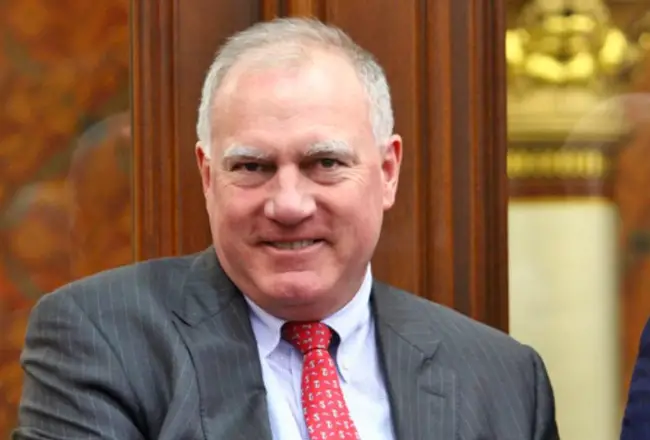What does the future hold for health care insurance in the U.S. and in Connecticut? Following the U.S. House of Representatives”™ controversial vote to replace the Affordable Care Act, and the two health insurers on Connecticut”™s exchange submitting new rates for individual and small-business policies sold in 2018, it doesn”™t look particularly good.
While increases were expected, the size of them are still astounding: the top requested increase is for up to 52.1 percent.
That”™s part of Anthem Blue Cross Blue Shield”™s proposal, which seeks premium increases between 19 to 52.1 percent depending on the policy. For plans covering individuals and their families, the insurer is seeking an average increase of 33.8 percent.
Noting that it provides access to care for more than 55,000 individual members on and off the exchanges, Anthem said that its new rate filings “reflect increases in the cost of delivering medical services coupled with pharmacy expenses and overall increased use of health care services by members in ACA-compliant plans.”
The rates assume that cost-sharing reduction subsidies (CSR) will be funded ”” something that remains uncertain in the current volatile environment.
“We are notifying state officials that if we do not have certainty that CSRs will be funded for 2018 by early June, we will need to evaluate appropriate adjustments to our filings such as requesting additional rate increases, eliminating certain product offerings or exiting certain Individual ACA compliant markets altogether,” Anthem said.
Meanwhile, ConnectiCare is seeking an average rate hike of 15.2 percent on policies it sells through the state”™s health insurance exchange Access Health CT, where it covers about 51,000 people, and an average 10 percent to 26.37 percent rate hike on plans it sells off the exchange, which cover about 37,000 people.
“We are extremely mindful of the impact that rate increases have on our members and have taken every possible step to keep our plans as fairly priced as possible within the reality of today”™s health care environment,” the company said in a statement. “Our proposed rates are based on several factors including medical and pharmacy cost trends and expected utilization of services by our members.”
“In addition, the current legislative and regulatory environments present market uncertainties that are outside of the company”™s control including the primary risks of a weakening of the individual mandate, uncertainty of funding for cost share reductions and our position in the competitive landscape,” it continued.
“In the 2018 rates, we are seeing claims experience that reflects increased medical and prescription drug costs along with higher utilization as well as uncertainty in the marketplace,” state Insurance Commissioner Katharine L. Wade said in a statement. “I will continue to work across the administration and with our congressional delegation to advocate for market stability for 2018 and beyond to protect Connecticut consumers.”
Wade noted that, as she has done the past two years, she will call for public hearings on the rate increases, which will be held on June 14. The carriers have until May 15 to make adjustments to their proposals, she said.
Meanwhile, Access Health CT CEO Jim Wadleigh expressed frustration over the uncertainty that surrounds the health care insurance environment after the congressional vote. That bill, which narrowly passed by a 217-213 majority, has now gone to the U.S. Senate. Several members on both sides of the aisle have indicated that its passage there will face an uphill climb and most likely result in a decidedly different bill.
U.S. Sen. Susan Collins (R-Maine) told ABC”™s George Stephanopoulos: “The House bill is not going to come before us. The Senate is starting from scratch. We”™re going to draft our own bill. And I”™m convinced that we”™re going to take the time to do it right.”
“I hope my Republican friends toss this House bill out the window and resist the temptation to follow the same partisan rushed process,” said Senate Minority Leader Chuck Schumer of New York. “I hope my friends on the other side of the aisle drop repeal, which is hurting our health care system right now … and start working with Democrats to make our health care better.”
Wadleigh said he was in Washington, D.C., meeting with Seema Verma, administrator of the Centers for Medicare and Medicaid Services, when the House voted on May 4.
“There are a lot of questions about how AHCT (Access Health CT) can continue to fulfill our mission of trying to influence health care costs in Connecticut and lower the uninsured rate,” Wadleigh said. “We fully expect more conversations on the subject.”
He said that if the Senate does draft its own bill to replace and repeal the Affordable Care Act, it will then go back to the House ”” meaning that any real changes will take at least several weeks to be formalized.
As for the future of the two insurers on Access Health CT, Wadleigh said he appreciated that “both carriers have been very upfront about the level of uncertainty taking place in Washington.”
He added that all state-based exchanges are continuing to share their concerns with state legislators. Wadleigh noted that both U.S. senators from Connecticut, Democrats Chris Murphy and Richard Blumenthal, have been allies in trying to protect health care for citizens.
Murphy gave a Powerpoint presentation that laid out the effects the House”™s prior version of the bill would have had on families and the U.S. health care system.
“House Republicans just passed a bill they know will end insurance for 24 million and make insurance totally unaffordable for anybody with a pre-existing condition. That”™s an abomination,” Murphy said on May 4. “This is not a health care bill ”” it”™s a tax cut for millionaires that”™s paid for by taking insurance away from the sick and jacking up prices for the healthy. Virtually no one in America wants this bill ”” it polls at about 18 percent ”” and the Senate should bury it before it ever gets to our door.”
“We all know our health care system has problems, but those won”™t be solved by ripping insurance away from people who need it to live,” Murphy said. “I”™ll work with anyone who”™s willing to make sure this never gets to the president”™s desk so that we can have a bipartisan process that preserves what works in the Affordable Care Act and fixes what needs improvement.”
In the meantime, Wadleigh said he views Sept. 1 as “the key date.” That is the deadline for Anthem and ConnectiCare to determine whether they will remain on the exchange in 2018.






















